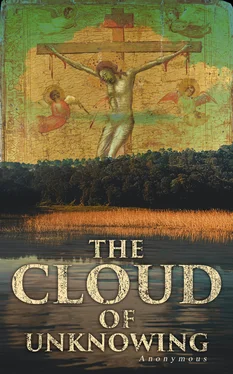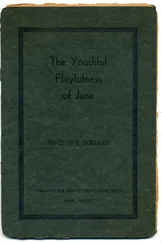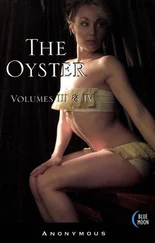This edition is intended, not for the student of Middle English, nor for the specialist in mediaeval literature; but for the general reader and lover of mysticism. My object has been to produce a readable text, free from learned and critical apparatus. The spelling has therefore been modernised throughout: and except in a few instances, where phrases of a special charm or quaintness, or the alliterative passages so characteristic of the author’s style, demanded their retention, obsolete words have been replaced by their nearest modern equivalents. One such word, however, which occurs constantly has generally been retained, on account of its importance and the difficulty of finding an exact substitute for it in current English. This is the verb “to list,” with its adjective and adverb “listy” and “listily,” and the substantive “list,” derived from it. “List” is best understood by comparison with its opposite, “listless.” It implies a glad and eager activity, or sometimes an energetic desire or craving: the wish and the will to do something. The noun often stands for pleasure or delight, the adverb for the willing and joyous performance of an action: the “putting of one’s heart into one’s work.” The modern “lust,” from the same root, suggests a violence which was expressly excluded from the Middle English meaning of “list.”
My heartiest thanks are due to Mr. David Inward, who transcribed the manuscript on which this version is based, and throughout has given me skilled and untiring assistance in solving many of the problems which arose in connection with it; and to Mr. J. A. Herbert, Assistant‑keeper of Manuscripts in the British Museum, who has read the proofs, and also dated the manuscripts of the Cloud for the purposes of the present edition, and to whose expert knowledge and unfailing kindness I owe a deep debt of gratitude.
EVELYN UNDERHILL.
HERE BEGINNETH THE PRAYER ON THE PROLOGUE
Table of Contents
GOD, unto whom all hearts be open, and unto whom all will speaketh, and unto whom no privy thing is hid. I beseech Thee so for to cleanse the intent of mine heart with the unspeakable gift of Thy grace, that I may perfectly love Thee, and worthily praise Thee. Amen.
HERE BEGINNETH THE PROLOGUE
Table of Contents
In the name of the Father and of the Son and of the Holy Ghost! I charge thee and I beseech thee, with as much power and virtue as the bond of charity is sufficient to suffer, whatsoever thou be that this book shalt have in possession, either by property, either by keeping, by bearing as messenger, or else by borrowing, that in as much as in thee is by will and advisement, neither thou read it, nor write it, nor speak it, nor yet suffer it be read, written, or spoken, of any or to any but if it be of such one, or to such one, that hath by thy supposing in a true will and by an whole intent purposed him to be a perfect follower of Christ not only in active living, but in the sovereignest point of contemplative living the which is possible by grace for to be come to in this present life of a perfect soul yet abiding in this deadly body; and thereto that doth that in him is, and by thy supposing hath done long time before, for to able him to contemplative living by the virtuous means of active living. For else it accordeth nothing to him. And over this I charge thee and I beseech thee by the authority of charity, that if any such shall read it, write it, or speak it, or else hear it be read or spoken, that thou charge him as I do thee, for to take him time to read it, speak it, write it, or hear it, all over. For peradventure there is some matter therein in the beginning or in the middle, the which is hanging, and not fully declared where it standeth: and if it be not there, it is soon after, or else in the end. Wherefore if a man saw one matter and not another, peradventure he might lightly be led into error; and therefore in eschewing of this error, both in thyself and in all other, I pray thee for charity do as I say thee.
Fleshly janglers, open praisers and blamers of themselves or of any other, tellers of trifles, ronners and tattlers of tales, and all manner of pinchers, cared I never that they saw this book. For mine intent was never to write such thing unto them, and therefore I would that they meddle not therewith; neither they, nor any of these curious, lettered, or unlearned men. Yea, although that they be full good men of active living, yet this matter accordeth nothing to them. But if it be to those men, the which although they stand in activity by outward form of living, nevertheless yet by inward stirring after the privy spirit of God, whose dooms be hid, they be full graciously disposed, not continually as it is proper to very contemplatives, but now and then to be perceivers in the highest point of this contemplative act; if such men might see it, they should by the grace of God be greatly comforted thereby.
This book is distinguished in seventy chapters and five. Of the which chapters, the last chapter of all teacheth some certain tokens by the which a soul may verily prove whether he be called of God to be a worker in this work or none.
GHOSTLY FRIEND IN GOD, I pray thee and I beseech thee that thou wilt have a busy beholding to the course and the manner of thy calling. And thank God heartily so that thou mayest through help of His grace stand stiffly in the state, in the degree, and in the form of living that thou hast entirely purposed against all the subtle assailing of thy bodily and ghostly enemies, and win to the crown of life that evermore lasteth. Amen.
HERE BEGINNETH THE FIRST CHAPTER
Table of Contents
Of four degrees of Christian men’s living; and of the course of his calling that this book was made unto.
Ghostly friend in God, thou shalt well understand that I find, in my boisterous beholding, four degrees and forms of Christian men’s living: and they be these, Common, Special, Singular, and Perfect. Three of these may be begun and ended in this life; and the fourth may by grace be begun here, but it shall ever last without end in the bliss of Heaven. And right as thou seest how they be set here in order each one after other; first Common, then Special, after Singular, and last Perfect, right so me thinketh that in the same order and in the same course our Lord hath of His great mercy called thee and led thee unto Him by the desire of thine heart. For first thou wottest well that when thou wert living in the common degree of Christian men’s living in company of thy worldly friends, it seemeth to me that the everlasting love of His Godhead, through the which He made thee and wrought thee when thou wert nought, and sithen bought thee with the price of His precious blood when thou wert lost in Adam, might not suffer thee to be so far from Him in form and degree of living. And therefore He kindled thy desire full graciously, and fastened by it a leash of longing, and led thee by it into a more special state and form of living, to be a servant among the special servants of His; where thou mightest learn to live more specially and more ghostly in His service than thou didst, or mightest do, in the common degree of living before. And what more?
Yet it seemeth that He would not leave thee thus lightly, for love of His heart, the which He hath evermore had unto thee since thou wert aught: but what did He? Seest thou nought how Mistily and how graciously He hath privily pulled thee to the third degree and manner of living, the which is called Singular? In the which solitary form and manner of living, thou mayest learn to lift up the foot of thy love; and step towards that state and degree of living that is perfect, and the last state of all.
HERE BEGINNETH THE SECOND CHAPTER
Читать дальше









